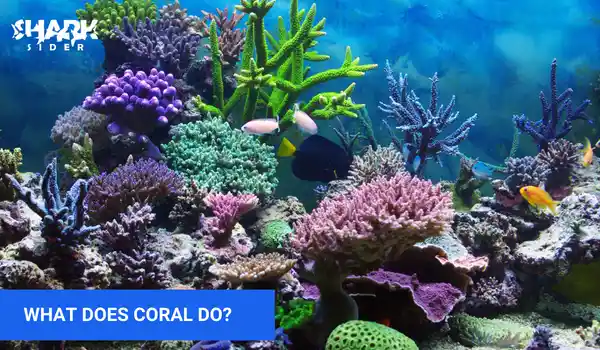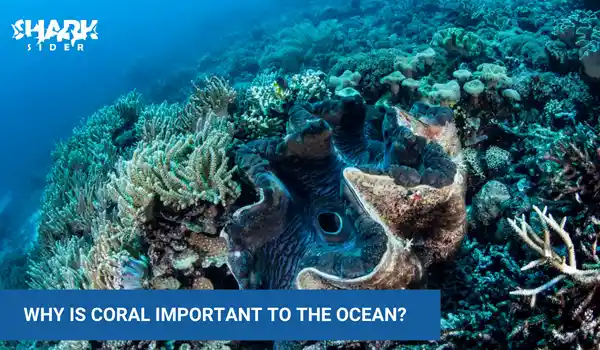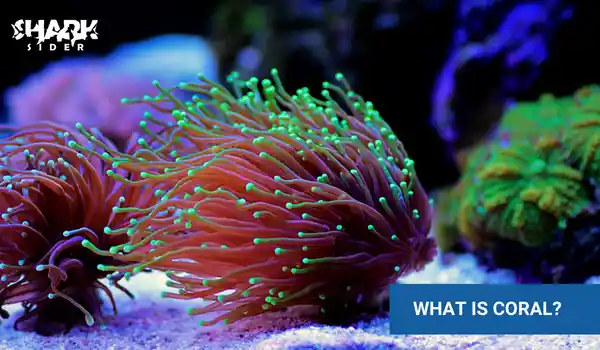Coral, one of the oldest and most diverse living organisms on this planet, often called the rainforest of the ocean for its immense diversity, plays a critical role in our planet’s health and balance. Not only does coral have an enormous impact on marine ecosystems by providing habitats to over 25% of known fish species around the globe but it also helps protect coastal regions from storms and buffer them against wave action.
We may not always see their effects directly, but without coral, we would be missing out on a number of vital benefits – and unfortunately, they are facing numerous threats that could put us all at risk if ignored. To help understand how crucial corals really are and why we should be doing more to safeguard them, let’s dive into what does coral do.
What is coral?
Coral, in its simplest form, is an animal that produces a hard exoskeleton made of calcium carbonate. Corals live in colonies and the individual polyps manufacture their own skeletons as well as those of their neighbors. This creates the structures we know today as coral reefs. Coral reefs are found all around the world in warm, shallow, and sometimes very deep waters.
What does coral do?
Coral is one of the oldest lifeforms on earth and plays an incredibly important role in our oceans. As marine architects, they build intricate structures that provide a habitat for thousands of species. Coral reefs are formed when multiple coral polyps lay down calcium carbonate skeletons which pile up to create intricate shapes and formations that house fish, invertebrates, corals, and algae. These refugees act as nurseries for many species and are home to a variety of marine life.

Coral also plays an important role in increasing biodiversity by providing shelter and food for other organisms. They provide resources that enable the growth and reproduction of fish, invertebrates, mollusks, and other marine life. In addition to providing refuge for many species in our oceans, coral also plays an essential role in maintaining the health of adjacent coastlines.
By breaking down wave energy before it reaches the shore, corals protect coastlines from erosion and damage caused by storms or flooding. Not only that, but they also act as buffers between land and deeper ocean ecosystems, helping to keep pollutants from entering the ocean.
What do coral reefs do for marine life?

Coral reefs are home to an incredible variety of marine life. Fish and other aquatic species depend on the coral reef for food, shelter, mating locations, and more. It’s estimated that nearly 25% of all ocean species rely on coral reefs in some way. In addition to providing a home for many species, coral also serves as an important food source for many marine creatures. Therefore, it’s no wonder that coral reefs are often called the “rainforests of the sea”. They provide essential services to our oceans and support a wide variety of marine life.
What threatens coral reefs?
Unfortunately, coral reefs are increasingly threatened by a wide variety of human activities. Global warming and ocean acidification caused by the burning of fossil fuels have led to increased temperatures in many areas, which can damage coral reefs. Pollution from land runoff and sewage creates toxins that can kill off corals and alter their delicate ecosystems. Overfishing, destructive fishing practices, coastal development, and other human activities can also damage coral reefs.
What can we do to protect coral reefs?
Coral reefs are essential to the health of our ocean ecosystems, so it is important that we take action to protect them. This means reducing our own carbon footprint by minimizing fossil fuel use and recycling whenever possible. We should also reduce our consumption of seafood that comes from destructive fishing practices and support sustainable fisheries. Finally, we should work to protect coastal habitats by reducing the amount of pollution that enters the ocean.
Conservation is key if we are to protect coral reefs and the incredible range of species they provide a home for. By taking action now, we can ensure that future generations can continue to enjoy the incredible beauty and diversity of coral reefs.
Conclusion
Coral reefs are incredibly important for the health of our oceans and play a vital role in sustaining marine life. Unfortunately, these habitats are increasingly threatened by human activities. It is essential that we take action to protect coral reefs and reduce the impact of our actions on these delicate ecosystems. By making small changes in our everyday lives, we can help ensure that coral reefs and the incredible diversity of species they support will continue to thrive.

